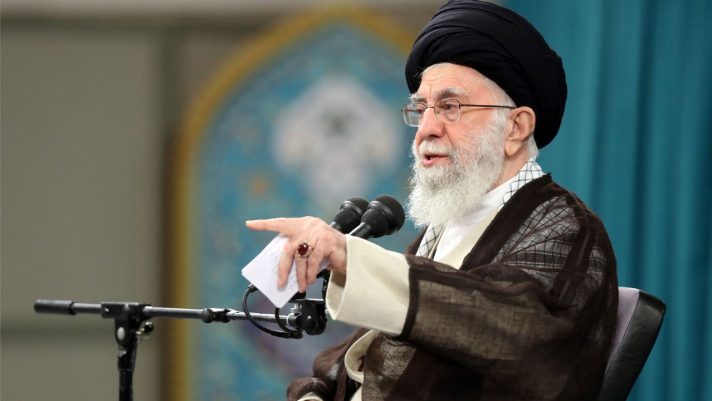Iran on Wednesday imposed sanctions on 34 individuals and entities from the European Union and Britain in reaction to similar measures taken over Tehran’s response to months-long protests.
The measures come two days after the EU and Britain slapped another round of sanctions on Iran, which has been rocked by protests since the September 16 death of Mahsa Amini.
Amini, a 22-year-old Iranian Kurd, died in custody after being arrested for allegedly breaching the country’s strict dress code.
The sanctions include financial measures, with the blocking of accounts and transactions in Iran’s banking systems, as well the “prohibition of visa issuance and entry” to Iran, the foreign ministry said in a statement.
Tehran accuses the people and organisations of “supporting terrorism and terrorist groups, instigating and encouragement to terrorist acts and violence against Iranian people”.
It also accuses them of “interference in the domestic affairs of the Islamic Republic of Iran and fomenting violence and unrest”.
Sanctions include 25 listed names from the EU, and nine from Britain.
France’s Radio J, the group European Friends of Israel (EFI), and 22 individuals including six members of the European Parliament are among those targeted.
The list also includes the Swedish-Danish right-wing extremist Rasmus Paludan, who burned a copy of the Koran in Sweden on Saturday, sparking strong protests from the Muslim world.
Iran had warned of a reciprocal action on Tuesday, a day after the EU imposed its fourth round of sanctions against the country since the protests started, placing 37 more officials and entities on an asset freeze and visa ban blacklist.
Britain on the same day sanctioned five more Iranian officials, broadening its blacklist to 50 individuals and organisations it considers to be involved in dealing with the protests.
The new list includes nine French nationals, among them Paris mayor Anne Hidalgo and the philosopher Bernard-Henri Levy.
Also targeted are three member of the French satirical magazine Charlie Hebdo, which was already placed as an entity on a previous Iranian sanctions list for publishing caricatures of the Supreme Leader Ayatollah Ali Khamenei.
From Britain, they include Victoria Prentis, the attorney general, army chief Patrick Sanders and the former defence secretary, Liam Fox.
Hundreds of people, including members of the security forces, have been killed and thousands arrested during the four-month protests, labelled by Iranian authorities as “riots” which they say are incited by the “enemies”.
Iran’s judiciary has sentenced to death a total of 18 people in connection with the protests. Four of them have already been executed, triggering widespread international outrage.








